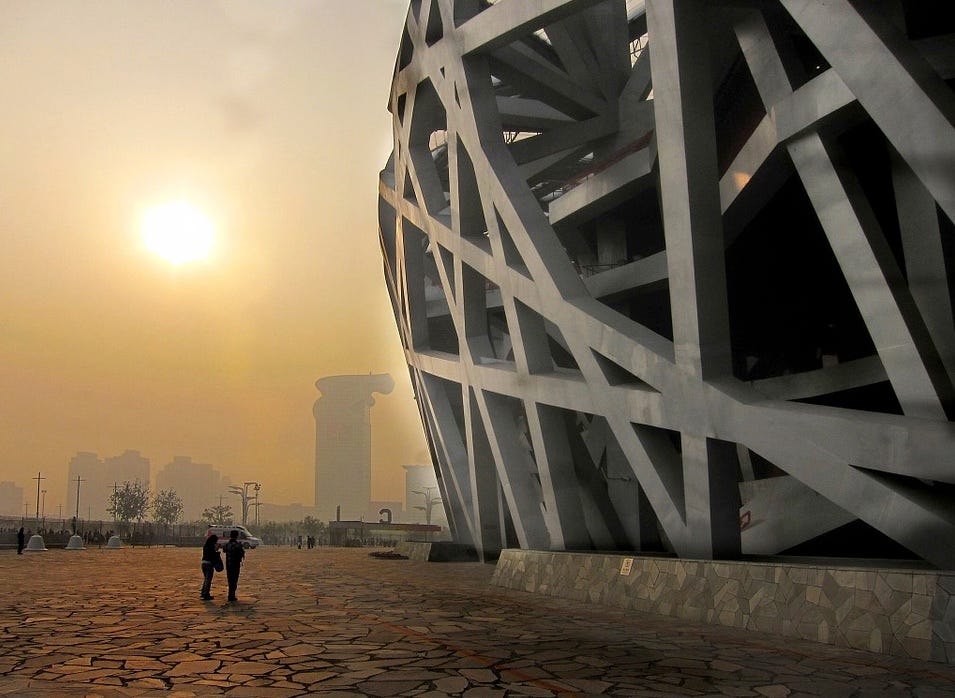Winter Olympics highlight China's pollution snowjob
Smog and artificial snow are the price to pay for its contribution to global warming
(A native of England, Matthew Diebel is a veteran journalist who has worked at NBC News, Time, USA Today and News Corp., among other organizations. Having spent his childhood next to one of the world's fastest bodies of water, he is particularly interested in tidal energy.)
First it was the smog. With less than two weeks to go until the opening ceremonies of the Beijing Winter Olympics, a heavy haze descended on the Chinese capital, The Washington Post reported, with residents’ air pollution apps turning purple, the color indicating “very unhealthy” carbon levels.
After that came news, according to Bloomberg, that these would be the first Winter Games to rely completely on artificial snow, with giant machines to spray frozen flakes on hills near the main venue, Zhangjiakou, which lies about 120 miles northwest of Beijing.
And then, further compounding the snow woes caused by global warming, fears grew that production of the fake flakes would further harm the already parched region, with the Hong Kong-based environmental group China Water Risk saying the area is “highly water stressed.”
All stuff, you might think, that would lead China, the world’s biggest polluter, to accelerate efforts to clean up its act.
But no. Instead, President Xi Jinping, the nation’s authoritarian president, said he was prioritizing energy production — which in China is mostly from coal — “to ensure the normal life of the masses,” according to comments made at a Politburo session reported by the official Xinhua news agency. While also touting China’s development of new energy sources, the nation should also “consolidate the foundation for domestic energy production, ensure coal supply security, and keep steady growth of crude oil and natural gas output.”
In other words, despite being a near-dictator, Xi is trying to keep his constituents, many of whom have become accustomed to accelerating economic growth, happy. And that includes opening new coal-fired power plants, with 43 to come in the next few years.
It’s a strategy, however, that could eventually put him on a slippery slope as his citizens cough and wheeze through an increasing amount of weather and water woes. And it’s deeply discouraging to countries who are racing to renewables, possibly leading to further international tensions.
Let the political games begin.

